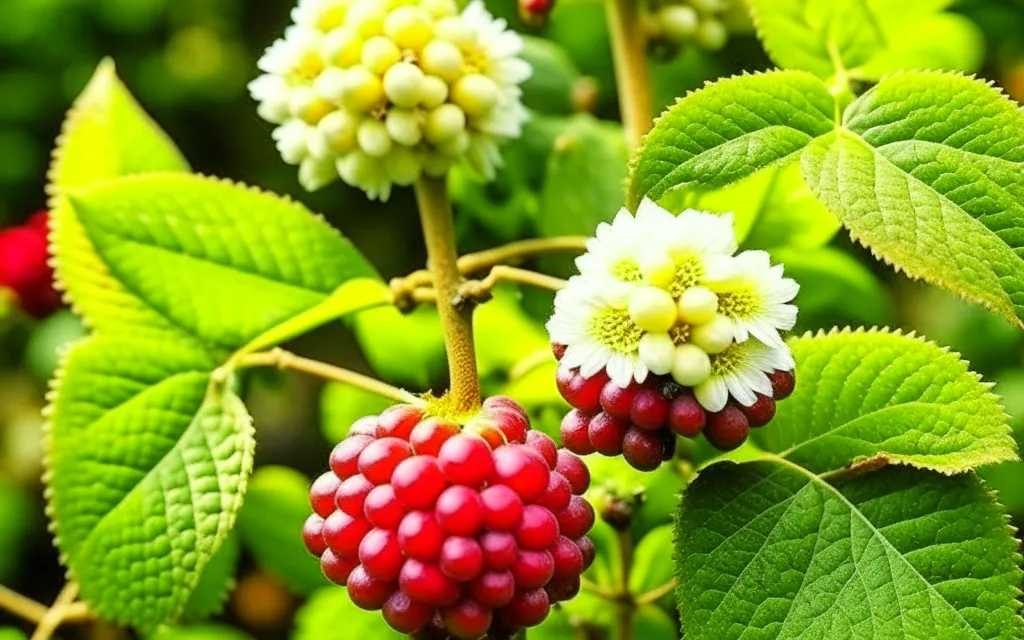
Growing Silverberry: My Journey and Tips
If you’ve ever wandered through a garden, I’m sure you’ve come across the lovely Silverberry (Elaeagnus commutata). This hardy little shrub, known for its silvery leaves and fragrant flowers, is not just a pretty face; it’s also a functional plant that can grow in a variety of conditions. So, let’s dive into what makes Silverberry a delightful addition to any garden!
Introduction to Silverberry
Silverberry is a resilient shrub that thrives in poor soils, making it a perfect candidate for areas where other plants might struggle. Its historic roots trace back to North America and parts of Asia, where it’s cherished for both its beauty and its ability to improve soil quality. The plant can grow up to 10 feet tall, but don’t let that intimidate you! With some thoughtful pruning and care, it can fit beautifully into your garden.
When it comes to planting, Silverberry loves full sun but can tolerate light shade as well. What’s remarkable is its versatility—I’ve seen it trained vertically along trellises, which not only saves space but also makes for a stunning garden display. Alternatively, you can allow it to spread out and create a lovely bushy appearance. There are several varieties of Silverberry to explore, including the native Silverberry and the more ornamental varieties like ‘Gilt Edge’ with its striking yellow-edged leaves.
Benefits of Companion Planting for Silverberry
Now, let’s chat about companion planting. If you’re asking, “What are the benefits of companion planting for Silverberry?” I can tell you that there are quite a few! For starters, planting alongside other species can enhance plant health, improve pest resistance, and even boost your yield. Having a mix of plants can create a balanced ecosystem, encouraging beneficial insects to take residence in your garden.
Good Companion Plants for Silverberry
So, you’re wondering, “What are good companion plants for Silverberry?” Well, I’ve rolled up my sleeves and experimented with various options over the years. Here are some standout companions:
Plants to Avoid
Interestingly, there are no specific plants I’ve come across that you absolutely need to avoid when growing Silverberry. It’s quite the adaptable plant! However, a good rule of thumb is to maintain some distance between the Silverberry and more invasive species to prevent any potential competition for nutrients. Aim for at least 2-3 feet separation for the best results.
Conclusion
Incorporating Silverberry into your garden is not just about adding a beautiful plant; it’s about creating a harmonious ecosystem. With its companions like fruit trees and berries, you can enhance your garden’s productivity while also enjoying the delightful blooms and foliage. By ensuring proper spacing and pairing with compatible plants, you’ll have a thriving garden that’s both functional and beautiful. Now, roll up those sleeves and have fun planting!
Planting Guidelines for Companion Plants to Silverberry
Hey there, fellow gardeners! If you’ve got a passion for plants, you’re likely aware of the magic that comes with companion planting. I want to dive into some specific spacing recommendations for companion plants that work well with Silverberry. Let’s create a thriving garden together!
General Spacing for Fruit Trees
When you’re planting most fruit trees, a good rule of thumb is to space them about 15 to 25 feet apart. This distance allows for air circulation and proper growth. For instance, Apple trees or Plum trees are fantastic choices alongside Silverberry.
Spacing for Berries
For berry bushes, a spacing of 3 to 4 feet apart works like a charm. Think about planting Blueberries or Raspberries near your Silverberry. They’ll benefit from the shade and nutrients!
Guidelines for Tall Companions
If you’re considering tall companions, aim for a spacing of about 6 to 8 feet apart. These taller plants can create a beautiful canopy. I recommend Sunflowers or Tomatillos. Just imagine sunflowers dancing in the breeze near your Silverberry!
Guidelines for Low-Growing Companions
Low-growing plants should be spaced around 1 to 2 feet apart. Consider Thyme or Strawberries. They won’t only be aesthetically pleasing; their low profile allows for good airflow and ground cover.
Guidelines for Strongly Aromatic Companions
Strongly aromatic plants should generally be spaced about 2 to 3 feet apart. They help deter pests and can enhance the flavors of nearby plants. Think about planting Lavender or Mint near your Silverberry.
Guidelines for Nutrient-Heavy Feeders
Nutrient-hungry plants should be spaced approximately 3 to 5 feet apart. These include plants like Corn and Melons. Just ensure they have enough nutrients from the soil and your Silverberry doesn’t get overshadowed!
Guidelines for Spreading or Vining Companions
For spreading or vining companions, allow for a distance of about 3 to 6 feet apart. Great examples are Cucumbers and Squash. These plants can benefit from climbing support, and their growth won’t interfere with Silverberry.
And here’s a quick tip: Remember, these are just guidelines! Always adjust based on your specific garden conditions, soil quality, and the mature sizes of the plants you select. Every garden has its unique personality!
Summary for Companion Plants
Fruit Trees
Apple Trees: Excellent companions with Silverberry, they thrive when planted alongside Cherries. Both trees appreciate similar soil conditions. Also, look at Pear Trees as a great match for a mixed fruit orchard!
Plum Trees: These beauties do well near Silverberry but are also great paired with Peach Trees for a delightful fruit medley.
Berries
Blueberries: They love the acidic soil and can thrive alongside Cranberries, making them perfect partners in flavor and cultivation.
Raspberries: These are charming companions that also pair well with Blackberries. Together, they offer a beautiful array of colors and tastes!
Now, go ahead and get those plants in the ground! With the right spacing and companions, you’ll have a flourishing garden to be proud of. Happy planting!

Leave a Reply